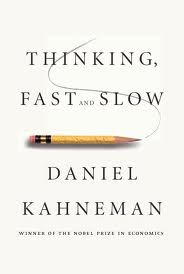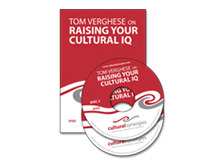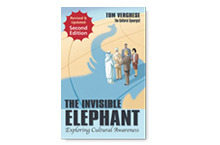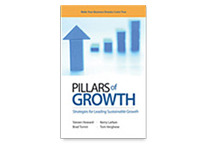
|
| THE CULTURAL SYNERGIST |
|
Here is a story that I would like to share with you. It is a story that one of my coaching clients shared with me some time ago. It was a moment that led him to understand the impact that culture can potentially have on business interactions. My client was invited to a dinner that was between his European and Chinese counterparts. The dinner took place in a Chinese restaurant in China. As is customary, the hosts selected the menu and adhered to foods and customs that were appropriate and respectful for their guest. One of the many dishes was fish. The fish head was placed on the table in front of the European guest. When this fish head was served onto his plate he stood up, angry and disgusted that he was served something that he found extremely offensive, stating �I wouldn�t feed this to my dog�. Was this a reaction or a response? Reacting and responding can have opposing effects on circumstances instantaneously, as was the case in this instance. Luckily for everyone in the room my client realised immediately that this was in fact a cultural misunderstanding. The fish head is always given to the guest of honour and it was clear to him that the guest of honour didn�t have this knowledge. My client responded immediately by explaining this to both parties and diffused the situation. In my mind this story is an example of a reaction. He was defensive, angry and lost control. The outcome was a tense and hostile environment that was received as offensive and rude by his hosts. When we react to a situation or discussion it is automatic and instantaneous. Our emotions takeover, we often lose control, change the tone of our voice, have angry outbursts, place blame on others, display intolerance and we can also have physical reactions such as excessive sweating. A responsive approach involves thoughtful reasoning, allowing for a moment to gather thoughts and a greater degree of logic and observing our own emotions. When we are working with people of different cultures reaction versus response is critical. There is a greater likelihood that you will find yourself in situations where you will need to check your behaviour more than you would otherwise. A healthy level of emotional and cultural intelligence will help you to determine whether you are reacting or responding. Here are some strategies of how you can improve your levels of awareness and mindfulness when responding and reacting:
This is by no means an easy feat; but it can heavily influence outcomes, broaden your perspectives and allow you to have greater control over the situation/conversation. For those of you who are still wondering how the European guest could have dealt with the fish head in a more appropriate manner he could have:
Thank you for all of the great feedback from our July blog 'Consciousness and Cultural Intelligence'. If you would like to read or follow our Cultural Intelligence Blog go to: http://culturalsynergies.wordpress.com To read our latest discussion paper - The Business Case for Cultural Intelligence go to: http://www.culturalsynergies.com/images/stories/pdf_article/cq%20paperv3.pdf Best Wishes Tom Verghese Send to Friend |
||||
| Reacting Versus Responding |
||||

|
||||
|
I was kindly reminded of this book by one of
our blog followers. Kahneman explains that we are not the rational beings that we think we
are. He doesn�t imply that we are irrational, just that we are not always
consistent. He explores the nature of human decision-making and how our minds
process the world around us. He offers
some practical insights into how we make choices and some techniques that can
guard against the mental glitches that can often get us into trouble.
|
||||||
| RECOMMENDED BOOK: "Thinking, fast and slow; by Daniel Kahneman 2011 |
||||||
 |
||||||
|
|
RESOURCES 'Raising Your Cultural IQ - DVD and CD 'Raising Your Cultural IQ' explores the issues around culture, the challenges that culture can pose and provides some great strategies on how to leverage on cultural differences and similarities. 'The Invisible Elephant - Exploring Cultural Awareness' Book testimonial by Asma Ghabshi Visit our store here
|
|

|
||

|
||

|
||

|
|